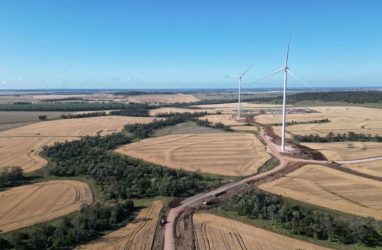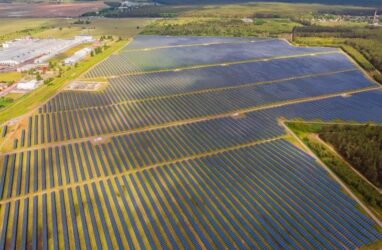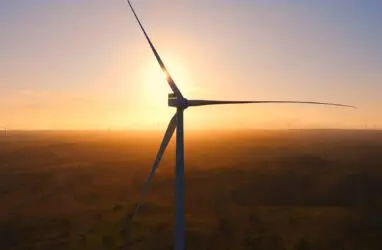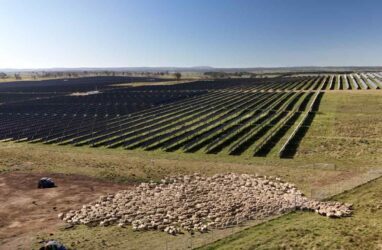Feed aggregator
Coalition plan to dump fuel efficiency penalties would make Australia a global outlier
Developer launches biochar facility under GGGI’s flagship programme in the Philippines
Peter Dutton’s climate policy backslide threatens Australia’s clout in the Pacific – right when we need it most
Starlings fall to record low in UK’s 2025 Big Garden Birdwatch
RSPB urges people to support threatened birds by cutting lawns less frequently and avoiding pesticides
Fewer starlings than ever have been spotted by participants in the RSPB’s Big Garden Birdwatch, raising fears for their numbers.
The bird conservation charity is urging Britain’s gardeners to keep their lawns wild by not cutting them too often, and to avoid the use of pesticides, which reduce the number of insects to eat and can poison birds.
Continue reading...Australian project developers highlight other ACCU demand sources if Safeguard weakened
It’s time renters got a fair go on solar – Greens policy shows the way
The post It’s time renters got a fair go on solar – Greens policy shows the way appeared first on RenewEconomy.
Energy Insiders Podcast: Big leap forward for batteries on wheels
The post Energy Insiders Podcast: Big leap forward for batteries on wheels appeared first on RenewEconomy.
Memo to the LNP: A pivot back to coal is the last thing regional Queensland needs
The post Memo to the LNP: A pivot back to coal is the last thing regional Queensland needs appeared first on RenewEconomy.
EnergyCo grants $60m to 54 projects in first round of REZ community benefits scheme
The post EnergyCo grants $60m to 54 projects in first round of REZ community benefits scheme appeared first on RenewEconomy.
NSW issues guidebook for local farmers to “demystify the energy transition”
The post NSW issues guidebook for local farmers to “demystify the energy transition” appeared first on RenewEconomy.
Toads risk their lives crossing a Somerset road to mate. This year, a patrol rescued thousands
Charlcombe Lane near Bath is one of only five roads in UK closed for migration during breeding season
Why did the toad cross the road? To get to the other side, of course. But also, to reproduce.
Nearly 4,000 toads, frogs and newts have been rescued as they tried to cross one of only five roads closed for the migration season in the UK each year to reach a breeding lake on the other side.
Continue reading...The big lesson for Europe? Trump backed down under pressure
The EU neither ‘kissed ass’ nor unleashed its most powerful trade weapon. Now it must provide the world with an alternative to US chaos
My condolences to everyone who spent days trying to play 5D chess with Donald Trump’s market-exploding tariff mess. Where Trump is involved, there is a cloud of malevolent chaos, and there is grift amid the chaos. What grandmasters there are to be found are almost certainly grandmasters of grift.
When markets dump $10tn in three days and then gain trillions back in a single afternoon on the erratic decisions of one deeply corrupt person, you can be sure that a small number of people have made immense sums of money out of that volatility. Were the people responsible for abnormal spikes buying into the markets (including call options on various indexes and exchange-traded funds) on Wednesday morning – and again, 20 minutes before the tariff announcement went public – extraordinarily lucky? Were they in the right Signal group? Or were they just simply following Trump on Truth Social, where he posted: “THIS IS A GREAT TIME TO BUY!!! DJT” –just a few hours before dropping the news that he was kind of pulling back.
Alexander Hurst is a Guardian Europe correspondent
Continue reading...PR campaign may have fuelled food study backlash, leaked document shows
Eat-Lancet report recommended shift to more plant-based, climate-friendly diet but was extensively attacked online
A leaked document shows that vested interests may have been behind a “mud-slinging” PR campaign to discredit a landmark environment study, according to an investigation.
The Eat-Lancet Commission study, published in 2019, set out to answer the question: how can we feed the world’s growing population without causing catastrophic climate breakdown?
Continue reading...“It’s almost heartbreaking:” LNP states have killed two renewable targets in two weeks. What’s next?
The post “It’s almost heartbreaking:” LNP states have killed two renewable targets in two weeks. What’s next? appeared first on RenewEconomy.
WCI Markets: CCAs roiled as White House draws battle lines with state-run ETS schemes, tariff turnabouts upend macro markets
Australia’s biggest solar farm will help power industrial gas giant in major deal brokered by Zen
The post Australia’s biggest solar farm will help power industrial gas giant in major deal brokered by Zen appeared first on RenewEconomy.
Starlings disappearing from gardens, says RSPB
Australian voters are left in the dark on climate targets as they head to the ballot box | Tony Wood
There has been little talk about how Australia’s economy will get to net zero. That’s a terrible reflection on the state of our politics
The Coalition has been forced to reassert its commitment to the Paris climate agreement after its energy spokesperson, Ted O’Brien, appeared to waver on the pledge on Thursday.
O’Brien faced off against the climate change and energy minister, Chris Bowen, at a debate in Canberra, weeks out from a federal election in which energy policy is emerging as a hot-button issue.
Labor, the Coalition, nobody in this country will be able to achieve the emission target set by Chris Bowen and Anthony Albanese. The difference between Peter Dutton and Anthony Albanese is that Peter Dutton has been honest and upfront about that.
… go against the spirit, if not the letter, of the Paris Agreement, and – in some circumstances – could constitute a breach of those obligations.
Tony Wood is the energy and climate change program director at the Grattan Institute. This article was originally published in the Conversation
Continue reading...









